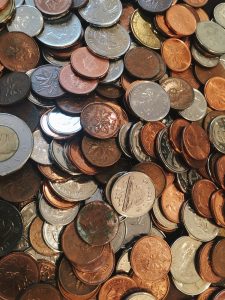Forex, or foreign exchange, is the process of buying and selling currencies to profit from the difference in their values. Interest rates play a significant role in how forex works, as they can affect currency values and ultimately determine the profitability of trades. In this article, we will explore how interest rates impact forex and how traders can use this information to their advantage.
First, it is essential to understand what interest rates are and how they are determined. Interest rates are the cost of borrowing money and are set by central banks such as the Federal Reserve in the United States or the European Central Bank in Europe. These rates can vary depending on economic conditions and government policies, such as inflation targets.
When a country’s interest rates rise, the currency typically strengthens as investors seek higher returns on their investments. This is because higher interest rates mean that the country’s economy is doing well, and there is less risk associated with investing in that country. Conversely, when interest rates fall, the currency usually weakens as investors seek higher returns elsewhere.
For example, suppose the Federal Reserve raises interest rates in the United States. In that case, this could cause the US dollar to strengthen as investors flock to the currency to take advantage of the higher returns. On the other hand, if the European Central Bank lowers interest rates, the Euro may weaken as investors move their money to other currencies with higher returns.
Interest rates can also impact forex through the carry trade. The carry trade involves borrowing money at a low-interest rate and investing it in a currency with a higher interest rate. This strategy can be profitable if the currency with the higher interest rate strengthens and the borrowing currency remains stable or weak.
For example, suppose a trader borrows Japanese yen at a low-interest rate and invests the money in Australian dollars, which have a higher interest rate. If the Australian dollar strengthens against the yen, the trader can sell the Australian dollars and pay back the borrowed yen, profiting from the difference in interest rates.
However, the carry trade can be risky as the borrowed currency can appreciate, causing losses for the trader. Therefore, it is essential to carefully monitor currency values and interest rates when engaging in carry trades.
Interest rates can also impact forex through central bank policies. Central banks can use interest rates to stimulate or cool down the economy, depending on the current economic conditions. For example, if an economy is struggling, a central bank may lower interest rates to encourage borrowing and spending, leading to economic growth. Conversely, if an economy is overheating and inflation is a concern, a central bank may raise interest rates to slow down borrowing and spending and prevent inflation.
Traders can monitor central bank announcements and policy decisions to anticipate changes in interest rates and currency values. This information can be used to make informed trading decisions and potentially profit from changes in currency values.
In conclusion, interest rates play a crucial role in how forex works as they can affect currency values and determine the profitability of trades. Traders must carefully monitor interest rates and central bank policies to make informed trading decisions and potentially profit from changes in currency values. Whether engaging in carry trades or monitoring central bank decisions, understanding how interest rates impact forex is essential for success in the currency markets.





